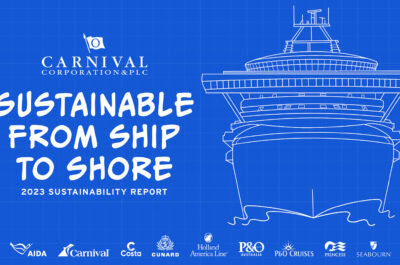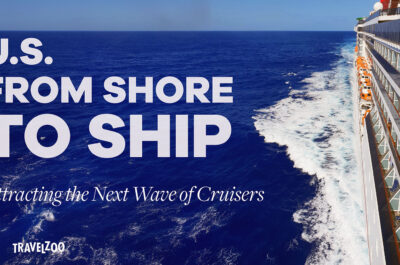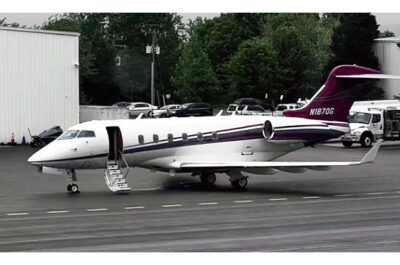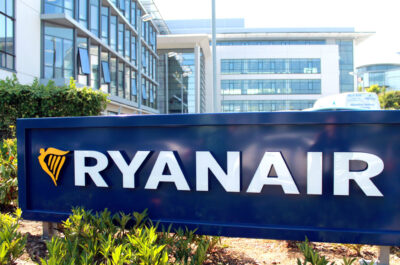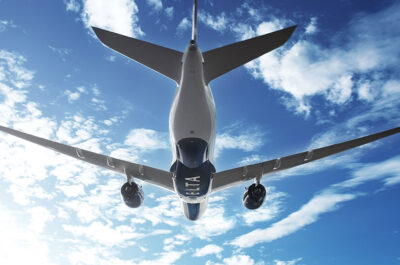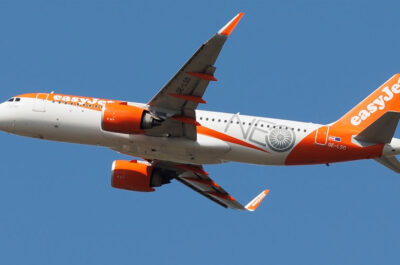…
Q: All indications point to a rather prolonged war in Iraq, in general how do you see this affecting tourism to European destinations this year? And which of your member associations would be hurt the most and the least because of an expected drop in arrivals?
A: Generally speaking we believe that Europe will be less affected than other destinations, because it is not directly involved in the war (except the United Kingdom), it is not located in immediate proximity of conflict regions, it is not perceived to be a potential terrorist target and it is not affected by the terrible disease SARS. Thus, in short, Europe is still better off than other destinations and is probably perceived as being safe from a health and geopolitical point of view.
It is difficult to say whether Members of our national associations will be affected in different ways. It is clear that tourism will shift to more regional tourism, rather than long-distance travel, but otherwise we do not dare to make any assumptions. The 11 September attacks had certainly different effects on the various European countries, but the situation was completely different, in that it was an unexpected event, it came in-between two seasons (summer / winter) and it completely shifted the tourism trends (more regional tourism, travel by car, etc.). The current events are different, as the Iraq war was expected and the industry and travelling public were prepared. The summer season is in bad shape as most travellers hold back their reservations.
Q: Percentage-wise, how negative do you expect arrivals to Europe from third countries to be because of the war and the general dismal economic situation worldwide?
A: We cannot give any estimates. But the air traffic statistics provided by the AEA (Association of European Airlines) give a good indication of the downturn in current travels: During the first full week of war, international traffic of their Member airlines continued to drop by 7,1% compared to the same week in 2002. Traffic to and from the Middle East was down by –52,3%, traffic in Europe was at –5,3%, North Atlantic –2,5% and Far East at –11,6%. This also supports our answer given to the first question that Europe is less affected than other destinations.
Q: Will the negative effects continue on into 2004 and if so to what extent?
A: Again, it is very difficult to estimate when and how quick the travel industry will bounce back. However, we are convinced that once the Iraq war is over and no other crisis situations occur, then the travel industry will be able to recover quickly. The travelling public are postponing their travel, they are not giving up on their travel plans. So, it is just a matter of time and the developments in the economic and political situation in the world.
Q: Do you feel Europeans will concentrate on travel within their own countries this year? Assuming they do, what do you believe should be done by agents and the trade in general in order to get the best results possible under such circumstances?
A: As regards the business travellers, we believe they are postponing their travel or conducting their business in a different manner using modern technologies. As regards leisure travel, it is very likely that people will prefer to stay within their region, choosing safe modes of transport (car, train) to areas, which they are familiar with and which do not present a threat in their eyes.
Travel agents have already adapted their product / service range to the new requirements of customers. As noted above, travellers will prefer national or regional tourism, so travel agents offer a variety of city trips, packages containing car/train travel, tailor made packages, etc. It is important to tailor the products / services to the needs and wishes of the customer, which are currently focusing on products / services perceived as ‘safe’.
Q: As the principal objective of ECTAA is to represent and promote the interests of European travel agents and tour operators, what are you doing as an association to help minimize the effects of a negative marketplace? For example, have you sent out a list of ‘things to do’ to your members?
A: ECTAA’s main objective is to represent the European travel agents and tour operators within the EU institutions.
ECTAA gathers and circulates useful information to its Member associations in various ways:
- Questionnaires to Member associations on e.g. the diverging travel advice notice issued by national authorities concerning SARS, state aid available to the travel industry, etc.
- Possibility of holding a crisis meeting to exchange information, discuss possible best practices, etc.
- Collecting country specific information through country reports.
- Lobbying Community institutions to withhold the implementation of new legislation, which would further burden the industry already in economic difficulties.
Q: Have any of your national association members sent in proposals or ideas that would help other members confront the present situation (guidelines, specific measures, etc.)?
A: If a Member wishes to obtain information from other associations, we circulate a questionnaire and collect the information on his behalf. For example, our Irish association contacted us because the Irish Department of Health & Children issued a negative travel advice end of March for travel to China and other countries affected by SARS, which is not consistent with the recommendation of the World Health Organisation, nor with any advises issued by other governmental agencies. This has far reaching consequences for the Irish travel industry, as they were swamped with cancellations from customers.
Q: As you act as the monitor of all the activities of the European Commission, the European Parliament, the Council and the other EU institutions, do you foresee any help coming from these areas in the form of financial aid for the tourism sector?
A: ECTAA has deployed all its efforts shortly after the 11 September attacks to obtain financial assistance from the Community for the travel industry. Airlines, including charter companies, were able to obtain state aid from their respective governments for the 4-day closure of the air space and additional help in form of governments covering the additional insurance costs for the airline industry. Yet, no particular aid was granted for travel agents and tour operators. It is unlikely that the Community will change its policy in respect of state aids.
However, ECTAA advocates to postpone the implementation of any new Community legislation affecting the travel industry.
Q: Can you foresee any way in which your organization can work with the above institutions in order to create a common promotional program for Europe as a destination for third countries? Or perhaps a common promotional program to entice inter-EU country travel?
A: Yes, ECTAA is part of a network entitled ETIN, the European Tourism Industry Network. This network encompasses some 50 international, pan-European and European national umbrella organisations representing a majority of the sectors engaged in travel and tourism in the EU. ETIN has called on the European Commission’s DG Enterprise to coordinate and contribute to the work of the European Travel Commission on the promotion of Europe as destination. The Commission has not yet reacted to this proposal.
Q: Do you foresee this crisis situation as a possible catalyst for the European Union to pay more attention to the tourism sector? As well, will this crisis cause a closer cooperation among agents and operators across the Union, bring about a number of merger agreements, or result in the closure or many tourism concerns?
A: We don’t think so. First of all, the European Community does not have competence for tourism, it is still in the hands of the Member States. So any actions for tourism will be disparate among Member States. There is talk of including a chapter on tourism in the new constitution of Europe (i.e. including tourism policy in the Treaties), however, there are so many diverging opinions among Member States and the tourism industry, that it is very unlikely to happen. Moreover, tourism is an industry of growth and thus an important source of income, in particular a source of fiscal income.
As regards the industry, we are not aware of any new developments in the market. However, it is early days. Tourism enterprises still have reserves.
Q: Do you have any emergency meetings planned with member associations to discuss the problem? If so when and where will these take place?
A: Immediately after the outbreak of war, ECTAA offered the possibility to hold a crisis meeting. Two dates were earmarked. However, the trade was well prepared for the events unfolding in the Gulf region and no crisis meeting was required. ECTAA has thus put the matter on the agenda of its next Air Matters Committee, which is scheduled on the 29th of April and which will give Members the opportunity to exchange information. The matter will of course also be discussed at our next bi-annual meeting scheduled on 22-23 May 2003 in Antwerp.





















































































































































